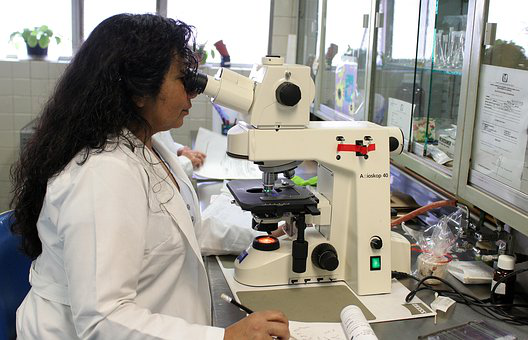Blog Summary
Discover the dynamic world of clinical research careers! From pivotal roles in drug development to ethical considerations and technological advancements, explore how this field offers both prestige and vital opportunities. With a growing demand for skilled professionals and competitive salaries, a career in clinical research promises meaningful contributions to healthcare innovation and patient well-being.
- An Overview of Clinical Research
- Demand and Scope of Clinical Research Scientists
- How to Become a Clinical Research Scientist
- Career Opportunities for Clinical Research Scientists
- Types of Clinical Research Jobs
- Challenges and Ethical Considerations
- Technological Advancements in Clinical Research
- Conclusion
A clinical research scientist has a key role to play in the medical field. The importance of PhD in clinical research scientist in the medical industry is seamless. Thus, the demand for qualified professionals with the required educational degree can acquire better clinical research roles.
An Overview of Clinical Research
Clinical research is a subdivision of healthcare science that involves conducting lab research on the health of humans and their illnesses. This research is conducted to study the reaction of certain medications for the disease. It helps in the development in the field of medicines and health services. This research is conducted, keeping in mind a specific set of questions. The research output should identify whether the medication is compatible with the human body and is effective on the diseases.

Clinical research also includes the study of new treatments and experiments on the human body. There are two types of clinical studies:
- Observational Studies: This helps to understand the disease pattern and its causes.
- Interventional Studies: It involves testing the efficiency of new drugs and the safety of its use. Clinical researches are scientific analyses of the risks and benefits of medicine and its impact on the human body. Clinical research involves conducting trials on the human body before the medicines hit the shelves. It also monitors the effect of medication on a larger pool of patients once the medicine hits the market.
An individual with a bachelor’s degree in biology, life sciences, or medicine followed by a master’s and PhD in clinical research has a greater career opportunity in the field.
Demand and Scope of Clinical Research Scientists
According to recent research, there is a 150% rise in the number of clinical researches conducted since 2010. This proves that clinical research is a trending career option. The pharmaceutical, biotechnology, and medical companies are growing at a fast pace. The increasing concern for the safety and value of human life enforces these clinical researches to ensure effectiveness and safety.
The clinical research industry is a billion-dollar industry that is demanding more and more qualified professionals. Moreover, the scope of clinical research scientists is growing at a faster pace.
There are almost 2,10,000 qualified clinical research scientists in the USA and about 70,000 in the UK. There are over 2,50,000 vacancies for clinical researcher scientists globally. These statistics evidence the fact that a career as a clinical research scientist is very lucrative and prestigious.
How to Become a Clinical Research Scientist
Association of Clinical Research Professionals provides certification exams to qualify and practice as a certified clinical research associate.
A life science or medical degree is the strongest degree for a person to become a clinical research scientist. Or a degree in anatomy, biology, biochemistry, chemistry, microbiology, toxicology, pharmacology, immunology, or physiology.
Besides the above-mentioned educational degrees, you should also meet the following criteria:
- Prior Experience: A valid experience certificate is required from an institution where you have volunteered yourself in clinical researches.
- Finding Renowned Organization: Studying in a reputed organization is key to get better exposure and easy employment.
- Online Courses: Taking a few related courses online is required to gain basic knowledge of clinical research associates. This gives you access to many entry-level positions in this field.
Above all, getting a PhD in clinical research is key to explore a better career as a clinical research scientist.
Career Opportunities for Clinical Research Scientists
The need for clinical research scientists is growing. Most of the patients’ life directly or indirectly depend on the clinical trials that a clinical research scientist conducts. They observe the effects and side effects of medicines. They also analyze the data collected from such results. Therefore, it is safe to say that they are the most responsible professionals out there. As discussed above, anyone with a degree in life science, biology, or pharmaceutical can have a career as a clinical research scientist. The career options are divided according to the professions:
1. Doctors: A doctor can become a principal investigator, co-investigator, medical advisor, drug manager, or clinical research physician.
2. Paramedics, Pharmacists, and Life Science Graduates: These graduates can become
- drug testers, developers, reviewers, or safety managers;
- clinical coordinators or research managers, or
- medical writers.
3. Management Professionals: A management professional can become a clinical project manager, clinical research manager, regulatory affair, and many more.
4. Clinical Research Investigators: Such individuals can conduct studies, writing/revising Standard Operating Procedures, and so on.
5. Study Coordinator: This person has to provide adequate safety and protection while collecting and managing study data.
6. Data Manager/Biostatistician: These people are responsible for predicting the seriousness of diseases and the effectiveness of the medication. They also help in collecting data, implementing appropriate methodologies, and interpreting the results.
7. Regulatory Affairs Managers: Their duty is about reviewing and registration of documents, studying technical data, and liaison with regulatory authorities.
8. Clinical Trial Auditors: They have to ensure that the standard procedures are followed while conducting the clinical trials.
9. Clinical Research Managers: They manage and supervise the clinical research staff. They also make the budget for clinical trials and protocols to conduct the studies.
10. Business Development Manager: These people bring in new investors and foster new business relationships. They are also responsible for market research.
11. Drug Safety Associates: They are accountable for maintaining a database for global drug safety regulations. They have to compile the clinical safety data also.
12. Medical Writer, Clinical Data Manager, and Others: A medical writer has to document the research, compile manuscripts, etc. A clinical data manager’s responsibility is to simplify the data and make it presentable. Other fields contain the auditors, IPR attorneys, and many more.

Types of Clinical Research Jobs
Clinical trials are the need of the hour in drugs and pharmaceutical companies. These companies are conducting trials on human beings and medicines extensively. Effective trials result in better knowledge of many diseases. Apart from these, there are many hospitals that need clinical research scientists that help them gather knowledge of the quality drugs. It is for the assistance of these companies and hospitals that the posts of clinical research scientists were created. There are mainly three fields in which there is a huge demand for candidates with a PhD in clinical research:
1. Clinical Research Organizations (CROs) in Pharma/Biotech Industry need
- Clinical Trial Assistant (CTA),
- Clinical Research Associate (CRA),
- Senior CRA, Clinical Team Leader,
- Project Manager,
- Senior Project Manager.
2. Site Management Organizations (SMOs) need
- Clinical Research Coordinators (CRC)/Study Coordinators,
- Principal Investigators/Co-Investigators,
- Medical Monitors,
- Project Manager/Senior Project Manager.
3. Data Management needs
- Data Entry Operators,
- Data Validation Executives,
- QA Executives,
- Data Managers, and so on.
Career Prospects and Salary Range
As we listed above, a clinical research scientist has career prospects at multiple levels in an organization, starting from entry-level positions such as clinical research administrators and progressing to higher and more responsible roles based on experience.
The average salary for a clinical research scientist in the United States is $100,314, with a salary range typically falling between $85,071 and $120,881. This competitive salary range reflects the high demand and respect for professionals in this field, making clinical research a promising career choice.
Source: Salary.com
Challenges and Ethical Considerations
Navigating a career as a clinical research scientist presents ethical considerations and challenges that are crucial to navigate. These include ensuring informed consent and protecting participant confidentiality throughout research phases. Balancing the pursuit of scientific knowledge with the ethical responsibility to minimize risks to participants is essential. Additionally, maintaining integrity in data collection, analysis, and reporting is vital to uphold research credibility and public trust.
Ethical dilemmas may arise regarding conflicts of interest, patient autonomy, and equitable access to research opportunities. Pursuing a PhD in clinical research online can equip professionals with the necessary skills and knowledge to address these challenges ethically, ensuring they contribute responsibly to advancing healthcare while prioritizing participant welfare and ethical standards.
Explore how “Essential skills for Clinical research program” to success in your Career as a Clinical Research Scientist.
Technological Advancements in Clinical Research
Technological advancements in clinical research have transformed the field, leveraging innovations to enhance efficiency, accuracy, and patient safety.
Key advancements include:
- Electronic Data Capture Systems: Streamline data collection and management processes.
- Artificial Intelligence and Machine Learning: Analyze large datasets to predict treatment outcomes and personalize medicine.
- Virtual Trials and Telemedicine Platforms: Facilitate remote patient monitoring, reducing logistical barriers and expanding research participation.
Conclusion
The field of clinical research offers diverse and rewarding career opportunities for professionals dedicated to advancing healthcare through rigorous scientific inquiry. With the demand for qualified clinical research scientists on the rise globally, individuals with a strong educational background and essential skills stand to thrive in various roles within pharmaceutical companies, research organizations, and healthcare institutions.
The competitive salary range and the industry’s billion-dollar growth underscore its prestige and importance. Embracing technological advancements and navigating ethical considerations are pivotal for ensuring research integrity and contributing ethically to medical advancements.
Pursuing continuous education, such as a PhD in clinical research, equips professionals to meet these challenges and drive meaningful impact in improving patient outcomes worldwide.








